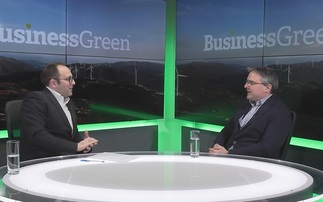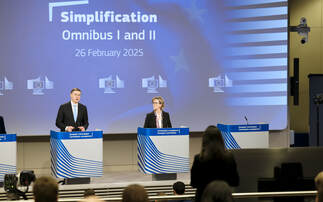The first signs of a consensus over a deal in Paris are emerging, allaying fears the global talks have stalled
Confidence is growing that a global deal to tackle climate change will be agreed before the year is out, after negotiators this week hinted consensus was building around the shape the Paris agreement should take.
The most recent official meeting of negotiators in Bonn last month was widely criticised for making little progress on the lengthy negotiating text. But a series of private meetings between the talks' key players are known to have been undertaken in recent weeks and a series of recent reports have suggested confidence is building that an ambitious agreement could yet be finalised.
On Wednesday a group of senior negotiators released a paper hinting that a framework for a global climate pact is beginning to emerge.
The report, by former South African environment minister Valli Moosa and former Norwegian environment minister Harald Dovland, was published by the Centre for Climate and Energy Solutions. It draws together the views of top climate negotiators from more than 20 countries, based on a series of unofficial meetings chaired by the report's authors.
It appears negotiators are congregating around a deal that would see all countries commit to reducing their carbon emissions, but without any binding targets. The deal's "hybrid structure" would include a legal requirement that all countries make some kind of commitment, but would not dictate what specific action should be taken.
The report also suggested growing support for proposals that governments review their plans every five years, with the aim of ensuring emissions reductions are in line with the previously agreed goal to limit average temperature rises to 2C. The proposed framework is in line with speculation from commentators, who believe the most likely outcome from Paris will be a loose framework deal that allows ambition to "ratchet up" at a later date.
The report came on the same day as the talks received a further boost, with confirmation European countries had ratified an extension to the Kyoto Protocol, the international climate treaty that now runs through to 2020 and will be replaced by any agreement reached in Paris.
The European Council and officials from Iceland approved the Doha Amendment, which ratifies the second phase of the Kyoto Protocol running from 2013-2020. The agreement binds the nations to jointly reducing carbon emissions by 20 per cent compared to pre-1990 levels, and is seen as a key stepping stone to establishing a post-2020 global deal in Paris.
Meanwhile, in an interview with the Guardian this week former US vice-president Al Gore said the treaty structure now being developed by negotiators makes it far more likely a global agreement will be reached. "The new architecture... makes it far more feasible to actually get an agreement that all nations sign up to, because they're selecting their own goals," he said.
He added people shouldn't feel too disheartened if a deal falls short of the level of emissions reductions required to meet the 2C target that's widely regarded as critical to avoid dangerous levels of warming. "Even if it falls a little bit short of the two-degree threshold, it would definitely lend a tremendous amount of momentum to a historic transition that's now well under way," he said, arguing the investment signal provided by a global deal would unleash a new wave of clean tech investment.
Any global deal would represent a significant step forward from the last set of global talks in Copenhagen in 2009 when only a voluntary accord was established, dashing hopes of a comprehensive agreement.
The improving mood music around the talks will go some way to allaying fears progress towards an agreement in Paris is stalling, following a round of talks in Bonn last month that were labelled "frustrating" by some observers. Officials were forced to make a last-minute compromise allowing co-chairs of the negotiations to make their own alterations to the text ahead of another meeting later this month, after failing to make much progress slimming down the 89-page draft text.
However, recent climate commitments from leading nations have boosted hopes key players at the talks are ready to do a deal. In June the EU and China pledged to step up green investment, while earlier this month the US and Brazil announced an agreement that commits both countries to delivering 20 per cent of their power from renewables by 2030. The announcements were accompanied by growing numbers of countries submitting their official climate action plans or INDCs to the UN.
The failure of previous summits means green businesses will remain understandably wary of any predictions Paris is destined to deliver a successful agreement. Major differences remain between many of the key players at the talks on important issues such as climate funding, historical responsibility for climate losses, and the future of carbon market initiatives. Privately, negotiators fear wrecking tactics from a handful of countries could yet derail the talks.
But equally, with just over four months to go until the start of the talks the negotiations appear to be characterised by higher levels of goodwill and optimism than at any point in their recent history.
This article is part of BusinessGreen's Road to Paris hub, hosted in association with PwC.









